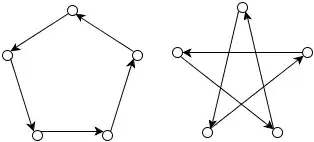Questions on the gamma function $\Gamma(z)$ of Euler extending the usual factorial $n!$ for arbitrary argument, and related functions. The Gamma function is a specific way to extend the factorial function to other values using integrals.
Gamma function, generalization of the factorial function to nonintegral values, introduced by the Swiss mathematician Leonhard Euler in the $18^{th}$ century.
Definition: The gamma function, denoted by $\Gamma$, is defined by \begin{equation*} \Gamma(z)=\int^{\infty}_{0}x^{z-1}e^{-x}\ \mathrm dx, \end{equation*} where $z$ is a complex number whose real part is greater than $0$. This integral function is extended by analytic continuation to all complex numbers except the non-positive integer. The reason for $z-1$ instead of $z$ in the exponent is to reflect the fact that $1/x$ is not improperly integrable on either $(0,1]$ or $[1,\infty)$.
Properties:
$1.~$ For $\Re(z)>0$ the integral is convergent, i.e. $\Gamma$ is well-defined. Also, $\Gamma(z)>0$ for $z>0$.
$2.~$ $\Gamma(z+1) = z \Gamma(z)$ and if $n\in\mathbb{Z}^+$, $\Gamma(n)=(n-1)!$. This allows us to extend the definition to any $z\in\mathbb{C}$, except non-positive integers.
$3.~$ $\Gamma(1)=1$
$4.~$ $\Gamma\left(\frac{1}{2}\right)=\sqrt{\pi}$
$5.~$ $\displaystyle{ \Gamma(z)\Gamma(1-z) = \pi \csc(\pi z)}$
$6.~$ $\log(\Gamma(z))$ is convex
$7.~$ $\Gamma(z)$ is analytic for $s>0$
$8.~$ $\Gamma(z)$ admits a Weierstrass product representation: $$ \Gamma(s) = \frac{e^{-\gamma z}} z \prod_{n=1}^\infty \left(1 + \frac z n \right)^{-1} e^{z/n}, $$where $\gamma$ is the euler-mascheroni-constant. In particular, $\Gamma(s)\neq 0$ for any complex $z$.
The famous Bohr-Mollerup theorem says that properties $1,3,6$ uniquely characterize $\Gamma$.
Here is a quick look at the graphics for the gamma function along the real axis.
Applications:
The gamma function shows up in many, seemingly unrelated, fields of mathematics. In particular, the generalization of the factorial provided by the gamma function is helpful in some combinatorics and probability problems. Some probability distributions are defined directly in terms of the gamma function. For example, the gamma distribution is stated in terms of the gamma function. This distribution can be used to model the interval of time between earthquakes. Student's $t$ distribution, which can be used for data where we have an unknown population standard deviation, and the chi-square distribution are also defined in terms of the gamma function.
References:
https://en.wikipedia.org/wiki/Gamma_function
http://functions.wolfram.com/GammaBetaErf/Gamma/introductions/Gamma/ShowAll.html
